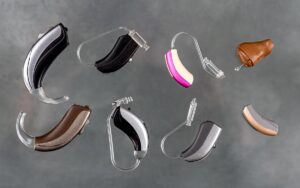.jpg)
Is there a device that exemplifies the present human condition better than headphones? These days, headphones and earbuds enable you to separate yourself from people around you while at the same time enabling you to connect to the entire world of sounds. You can keep up on the news, watch Netflix, or listen to music wherever you are. It’s pretty amazing! But the way we tend to use them can also be a health hazard.
At least, as far as your hearing health is concerned. And this is something that the World Health Organization has also stated. Headphones are everywhere so this is very worrisome.
The Hazard of Headphones And Earbuds
Frances loves Lizzo. And so she listens to Lizzo a lot. Because Frances loves Lizzo so much, she also turns the volume way up (there’s a certain satisfaction in listening to your favorite track at full power). Frances uses high-quality headphones so she won’t bother other people with her loud music.
This is a fairly normal use of headphones. Certainly, there are plenty of other purposes and places you might use them, but the basic function is the same.
We use headphones because we want a private listening experience (so we are able to listen to anything we want) and also so we’re not bothering the people around us (usually). But that’s where the hazard is: we’re subjecting our ears to a considerable amount of noise in an extended and intense way. After a while, that noise can cause injury, which leads to hearing loss. And hearing loss has been connected to a wide range of other health-related illnesses.
Protect Your Hearing
Hearing health, according to healthcare professionals, is a critical part of your complete health. Headphones are easy to get and that’s one reason why they present a health hazard.
The question is, then, what can you do about it? In order to make headphones a bit safer to use, researchers have put forward numerous measures to take:
- Take breaks: It’s hard not to crank up the volume when you’re listening to your favorite music. That’s easy to understand. But you need to take a bit of time to allow your hearing to recover. So every now and then, give yourself at least a five minute break. The concept is to give your ears some time with lower volumes every day. By the same token, monitoring (and restricting) your headphone-wearing time will help keep higher volumes from injuring your ears.
- Volume warnings are important: Most mobile devices have warnings when the volume gets to be dangerous. It’s extremely important for your ear health to adhere to these warnings as much as you can.
- Turn down the volume: The World Health Organization suggests that your headphones not exceed a volume of 85dB (for context, the volume of an average conversation is around 60dB). Regrettably, most mobile devices don’t calculate their output in decibels. Try to make sure that your volume is less than half or look up the output of your particular headphones.
- Restrict age: Headphones are being used by younger and younger people these days. And it might be smarter if we cut back on that a little, limiting the amount of time younger children spend wearing headphones. The longer we can stop the damage, the more time you’ll have before hearing loss takes hold.
You may want to think about lessening your headphone use entirely if you are at all worried about your health.
I Don’t Really Need to Worry About my Hearing, Right?
When you’re young, it’s not hard to consider damage to your ears as unimportant (which you shouldn’t do, you only have one pair of ears). But your hearing can have a huge impact on several other health factors, including your overall mental health. Neglected hearing loss has been connected to increases in the risk for problems like depression and dementia.
So your hearing health is connected inextricably to your total wellness. Whether you’re listening to a podcast or your favorite music, your headphone may become a health hazard. So the volume down a little and do yourself a favor.
[blogcta]




